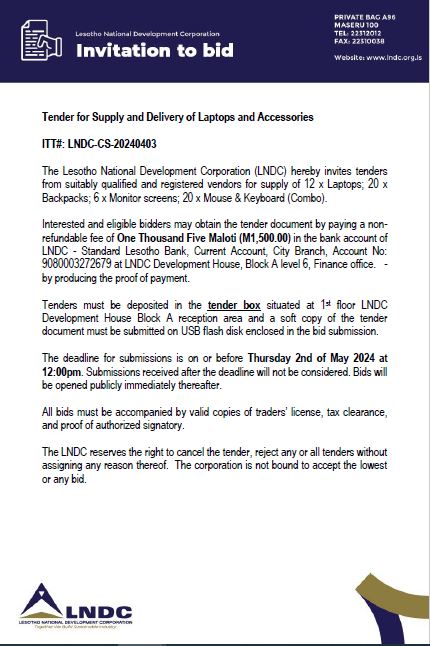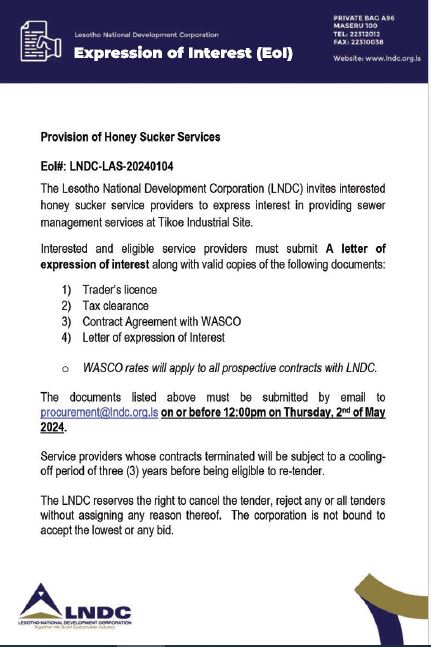Mohloai Mpesi
The Commissioner of Police (COMPOL) Holomo Molibeli escaped jail by a whisker when he was given a wrist slap by the High Court of Lesotho this week.
Molibeli was given a benefit of doubt in his contempt of court case by Justice Molefi Makara after he was dragged to court after failing to implement Justice Makara’s two issued orders where he reversed the April 2020 promotion of the 171 police officers. The first order reversed promotions of 44 senior officers while the other one nullified the 127 promotions of junior officers.
The Lesotho Police Staff Association (LEPOSA) had on April 27 and 30, 2020 filed two applications, challenging the aforementioned promotions. This included the promotion of Senior Superintendent (SSP) Mamello Ntsane who was promoted to the rank of Senior Assistant Commissioner of Police (SACP) and skipped the rank of Assistant Commissioner of Police (ACP).
Three Senior Inspectors Hlao, Khumalo and Motsoetla who had also skipped the rank of superintendent to that of Senior Superintendent, Deputy Commission of Police (DCP) Beleme Lebajoa, is one of those whose last year’s promotion has been reserved. DCP Lebajoa was in 2018 promoted to the rank of ACP from that of Inspector, skipping ranks of Senior Inspector, Superintendent and Senior Superintendent.
In 2020 he was promoted again to the rank of SACP also by Commissioner Molibeli. His 2018 promotion was challenged by LEPOSA and its matter was still pending before the now retired Justice Semapo Peete when Commissioner Molibeli effected the SACP promotion, he was as a result elevated to the DCP rank.
Justice Makara nullified the promotions on the grounds that Commissioner Molibeli had effected them in violation of the laws that govern the police service such as the Police Act but the Compol did not adhere to Makara’s orders which then read that…“The 44 promotions announced on April 22, 2020 concerning the forth to 47th respondents are hereby viewed, corrected and set aside as they are in law in violation of provisions of section 8 (1) and (2) of the Lesotho Mounted Police Service Act 1998 and Regulation 7 of the Lesotho Mounted Police Service (administration) Regulations 2003 (CIV/APN/130/2020).
“The promotions announced on 22 and 30 April 2020 concerning the forth to 130th respondent are hereby reviewed, corrected and set aside as they are in law in violation of Regulation 7 of the Lesotho Mounted Police Service (administration) regulations 2003 (CIV/APN/135/2020),†Justice Makara ruled.
“It should at this stage be cautious that in the course of deliberations over the matter. The counsel for the applicant conceded inter alia that prayer 2 (a) be abandoned because of being over board. Thus, the prayers should be comprehended as they stand in the application safe for this prayer 2 (a).
“It is at the onset worthwhile to define what contempt of court is. The offence constitute of an act of disobedience or disrespect towards the court, its officers or the proceedings of the court of law. The object of contempt is primarily to protect the public by preserving the authority of the court in the administration of justice from attack.
“It is in the same connection, intended to uphold the dignity of the courts and of judicial system, the majesty of the law, and to keep the administration of justice on course for the protection and advancement of the interest of the public.
“Contempt of court is usually a trajectory of a civil or criminal proceeding. This notwithstanding, it almost automatically assumes the content, characteristics and form of the criminal proceedings, this is attested to by the prescribed standard request for proving this offence,†he said.
He continued that it’s a try at law that for offence to be proved, whoever alleges it must evidentially prove each and every essential requirement for it to stand. He said that there is a plethora of authorities which elucidates the prerequisite for proving the contempt of court; citing a case of Kelebone RatÅ¡iu vs Principal Secretary Ministry of Forestry and others where the elements were cited to constitute of; service of the order which is the subject matter of contempt, noncompliance, wilfulness and malafide in the noncompliance.
“It was cautioned that the wilfulness and the malafice must be established and that this would shift the burden over to the respondent or defendant or the party alleged to have acted in contempt to demonstrate otherwise, the difference in this scenario, is that it would suffice for the latter to prove otherwise on the balance of probabilities it transpires from the pleadings in this case that first respondent was served with the order which in the interpretation of this court speaks for itself and that nevertheless, he has hitherto not complied with any of the terms in the judgement resultantly this projects an assignment for the court to determine whether the noncompliance is wilful and malafide against this backdrop, what appears to be of material significance, is a recognition that it remains incumbent upon the applicant to demonstrate at the requisite standard that the first respondent wilfully and in bad faith decided not to operationalize the judgement.
“The applicant has besides complaining about the noncompliance reinforced with reference to the statement made by the first respondent over one of the radio stations. It has interpreted the statement to be reflecting of the commitment of the first respondent not to comply with the order,†Makara said.
“The court has delicately addressed this mind to the submission made by Attorney General that the first respondent has not reciprocated to the order on account of the interpretation signed to it by the lawyers in his legal division. In a nutshell, the impression he gave to the court is that the first respondent believed in good faith that his legal division was providing with the accurate and authentic version of the order.
“It emerges clearly from the pleadings filed on behalf of first applicant that the statement he made over the radio resonates from the advice provided to him by his lawyers,†he said adding that it is unprofessional of the trained lawyers to have misled Molibeli upon executing the court orders.
“The courts find it regrettable, unprofessional and unfortunate for people who are trained in law and in the ethical values of law and justice to have misled the respondent; this introduces an element of doubt in their own professional integrity as lawyers and their inclination to encourage the undermining of the rule of law.
“The court finds this pathetic especially where this is a simple case in which other citizens profusely lament that their rise to equality and fairness has in circumstances of this case has violated, all that they are seeking for is justice by recognizing their rights as citizens and or human beings.
“The court maintains that the order is simple and straight forward and should be complied with as it is. It resultantly a determined issue would be whether in the light of the destructive and unlearned advice given to first respondent, it would be sound in law to hold the first respondent guilty as charged in resolving this question, it must be recalled that applicant is obliged to prove all their four listed requirements or sustainable.
“In this respect, it should be realised that the police service is structured in such a way on account of the exigencies it is bound to encounter, there must be a legal division meant by lawyers who would professionally and ethically advice the first respondent. This denotes that the first respondent would be obliged to consider the opinion presented to him by the division.
“It has been repetitively cautioned that it would be irrelevant whether a person who is advised in this context believes whether the advice is right or wrong. Instead, it would suffice for him to accept it and act upon it. It must be recorded that one of the worst acts that a subordinate can do to a senior is to mislead him since that would be a recipe for a disaster and the compromise on the recipient of the advice on the standing on bonafice of officials so advice. More often than not, this results in regrettable consequences which cause a profound reflection towards a constructive way forward.
“In the premises, the court reaches a conclusion that this is a typical case where the first respondent is a victim of a wrong advice which he might have believed it to be correct. Thus, he deserves a benefit of doubt, this is indicative of a possibility that continued failure by him to comply with the order may not subsequently qualify him for the doubt. In clear terms the application is disallowed,†he concluded.





